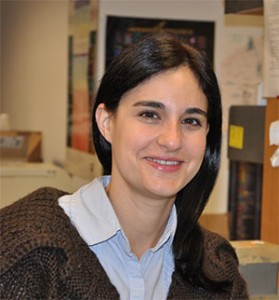Dr. Joseph Barber
Space and time are two very complicated concepts. Hopefully, someone will eventually have some success in explaining them to me one day, but I honestly don’t think my brain is set up to understand phenomena like black holes. One of the reasons that I study animal behaviour is that it offers tangible and physical actions that can be observed and eventually explained. More nebulous concepts that I cannot see easily (e.g., particle physics, most types of statistical analyses, molecular biology), I have much more trouble understanding.
What I think I do understand about space and time is that to travel between two separate points in space will take time. Obviously, the further apart these points are, the greater the time needed to traverse the distance. Let’s call wherever you are in your academic life right now “Point A”. We can then call the ideal job that you see yourselves eventually doing as “Point B”. Since you probably don’t imagine your ideal job being an entry-level position, we can see that it will take some time to get from A to B (especially if the path to do so is not a straight one, which is regularly the case). That brings us to another way of looking at this journey. Let’s say that you are completing a PhD in History or Chemistry, but no longer see yourself focusing specifically on these subjects in your future. Your journey will involve a transition stage where you will be identifying new paths that interest you, and taking stock of what skills you currently have that are transferable to the new paths you choose. This takes time, too.
The challenge with these scenarios is that the universe offers a seemingly endless number of possible destinations. So, to ensure that you end up at your preferred “Point B” rather than some random “Point F2xG!”, you need to think very carefully about the path you are on, and which direction you head next. The first job you get after Penn won’t be your only job, but it will help you to build a solid foundation of skills, knowledge, and contacts that might help you to reach your next destination. During your time at Penn you can ask yourself some of these questions:
- What internship or volunteer opportunities might give me hands-on experience or connections to people relevant to my future career?
- What student groups can I actively participate in that will allow me to demonstrate some of my relevant skills in action?
- Who can I talk to in my network, or the broader Penn alumni network, who can offer me insights, advice, and support to help me navigate my future paths effectively and efficiently?
Of course, it would be nice to find a shortcut between points A and B as a way to get you to your dream job faster…, or perhaps instantly. This would be the equivalent of a wormhole that connects two points in space without the need to expend the usual amount of time to travel between them. If you watch enough TV, then you know that wormholes are hard to find, often unpredictable, sometimes filled with either benevolent or malicious alien entities (or both), and regularly lead to all sorts of trouble. Taking the longer, non-wormhole route can actually provide you with the right amount of time to really research the path you are on to make sure it is indeed the best fit for your professional and life goals. For example, assuming that a career within academia is going to be the best choice for you simply because you haven’t yet explored the alternatives is perhaps not the best approach to take.
If you are interested in finding a wormhole to your ideal career destination, then the best advice that I can give you is to be a really great networker. The more people you know (and have a professional relationship with), or better, the more people who know you, then the greater the probability that they can act on your behalf to steer you towards opportunities, recommend you to other professionals in your field, or simply support you in your endeavors. They won’t hand you your dream job on a plate, but they can certainly point you towards a good restaurant that serves the kind of dish you enjoy. And unlike wormholes, the process of networking probably won’t result in you finding yourself on a ship…, a living ship, full of strange alien life forms, being hunted by an insane military commander. Well probably not, but space and time can sometimes be very strange!
 Dr. Lorena G. Benedetti is a second year postdoctoral scholar in the Department of Pharmacology of the Perelman School of Medicine at the University of Pennsylvania. Dr. Benedetti investigates mechanisms of malignant transformation in normal breast cells due to the overexpression of proteins of the Protein Kinase C family.
Dr. Lorena G. Benedetti is a second year postdoctoral scholar in the Department of Pharmacology of the Perelman School of Medicine at the University of Pennsylvania. Dr. Benedetti investigates mechanisms of malignant transformation in normal breast cells due to the overexpression of proteins of the Protein Kinase C family.
